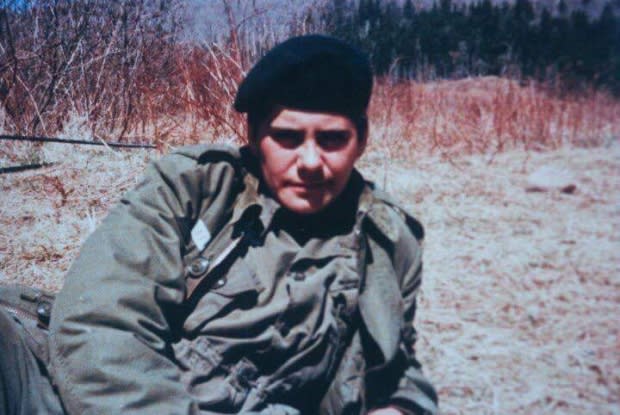Former sailor remembers persecution that followed decriminalization of homosexuality
The 50th anniversary of the passage of a bill decriminalizing homosexuality was marked last week, but Diane Doiron knows first-hand that the change in law didn't stop the federal government from discriminating against LGBT people.
Doiron, who lives in Pointe-Sapin, was forced out of the military after persistent and prolonged abuse over her sexuality.
The then 20-year-old Doiron was already living in a world that was not exactly accepting of gay people.
But she was out to her family and friends, and they were very supportive of her, she said.
Doiron said she wanted to join the military to serve her country. Her brother, grandfather, uncle and cousin all served in the Armed Forces at some point.
She signed up in February 1985. She had no idea of the institution's ingrained homophobia.
No change for army
Even though the federal government had decriminalized homosexuality 16 years earlier, activists say the move didn't necessarily change things for gay people.
The military, for instance, held on to its practice of investigating suspected LGBT service members. If they were proven to be gay, they would be released.
Doiron said she didn't know about the prohibition and was never informed of it.
"If I [had seen] that, or if somebody would have asked me, I would have said, 'OK, thanks but no thanks,'" said Doiron.
"I was 20 years old. I found my sexuality and, you know, I was moving forward in a positive way."
'Keep your head down'
It was only after basic training, when she received her assignment to Canadian Forces Station Shelburne in Nova Scotia that she realized her sexuality would paint a target on her.
She recalls a puzzling conversation with a superior at Canadian Forces Base Cornwallis.
"[She said] 'When you get to Shelburne, work hard, keep your head down, don't socialize,'" said Doiron.
"I was like, this is a kind of strange directive … I went to Shelburne … as soon as I walked into the cafeteria one day I was like 'Oh, I get it now.'"

Doiron said CFS Shelburne had just gone through a "witch-hunt" and five gay service members had been kicked out.
She hadn't been at CFS Shelburne long before she began to be interrogated.
Her superior officers tried to force her to reveal her sexuality and, when that failed, tried to get her to out other LGBT service members. She felt like a prisoner, she said.
"You're 20 years old. You don't know that you have rights. You don't know what's happening. … They don't care. They didn't care what damage they caused."
Taking a toll
The constant interrogations left Doiron feeling paranoid, and for good reason, according to later investigations.
A CBC News investigation from 2010 detailed tactics the military used to try to catch LGBT service members, including spying.
""The Canadian government ... didn't want to take any chances on those people [in case] hiding what they were made them subject to blackmail," said Raymond Giguere, a military investigator in the 1970s.
Doiron said she began sealing her letters with Scotch Tape, so they wouldn't be secretly read, and her physical and mental health took a hit.

"I went from being this amazing young kid who had chubby cheeks and full of life and wanted to do amazing things to 17 months later being a shell of myself," said Doiron.
Not long after, Doiron tried to take her own life.
She survived only to be put in a military psychiatric hospital — not for help but for more attempts to get her to out herself and others, she said.
In the hospital, Doiron met a doctor who found a way out for her.

The doctor told her she believed Doiron was gay, but that she didn't need to confirm that.
If Doiron wanted out of the military all she had to do was say so.
Doiron did and with the help of the doctor received a medical discharge, without having to reveal her sexuality or anyone else's.
"That's how I was able to keep my honour and be out of there," said Doiron.
"I still felt at that point that maybe I would go into the RCMP, not knowing that they didn't accept gays and lesbians either."
Long kept secret
Doiron didn't talk about her military experience for over 30 years.
It wasn't until 2017, when Prime Minister Justin Trudeau announced an apology for service members forced out of the military because they were gay, that Doiron began to tell her story.
Just this week she received her official apology from the government. The apology also said a note will be included in her military file saying any comments on her sexuality were inappropriate.

Doiron said she's not a martyr but a survivor, and she hopes that LGBT service members don't have to go through the pain she did.
"The young generation, young people can walk hand in hand, they can have children, they can be employed and not have to worry about their employment because of their sexuality," said Doiron.
"If it took my pain to cause all these positive things, so be it."

